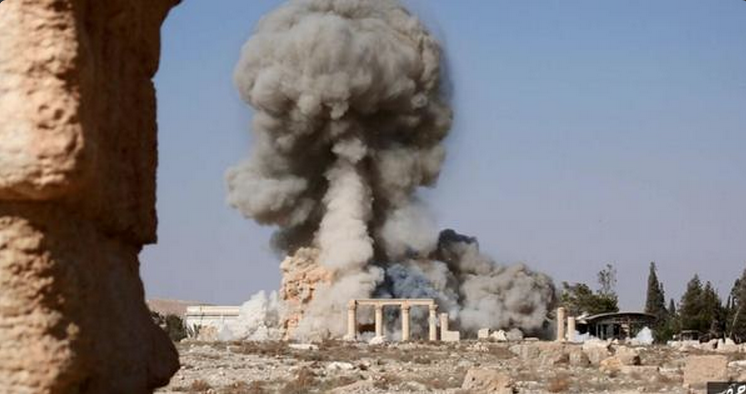TPM Reader BF wonders why we frame all our potential military actions around the need to stay …
A major problem with ISIS strategy is the “exit strategy” issue. Basically, we’ve become self-deterred about any serious military response to ISIS because we’re worried about how to get out if we get in. If we put “boots on the ground” (somehow SOF doesn’t count), there is a sense that we’ll get stuck.
This is a purely self-inflicted limitation. It is based on the notion that all uses of force must result in outcomes that are both durably stable and improve the condition of the people on the ground. In short, the notion is that we should only use ground forces when they can assure that the threat “never again” recurs and that by using force we are obligated to fix things (the Pottery Barn rule — you broke it, you bought it).
There is, as far as I can tell, no compelling historical, moral, or strategic reason for either of these constraints to exist. There is no reason the United States should refrain from defeating adversaries just because such actions are unlikely to be durable. Buying time is a valid goal. Even if one accepts the notion that there is no military “solution” to ISIS (which is likely true), it does not follow that military actions that decimate and weaken the group are, ipso facto, astrategic. It is possible to accept that military solutions will be both temporary and worth pursuing.
Similarly, the notion that the use of military force implies an obligation to rebuild and restore the territory of adversaries makes no sense. Of course, the majority of the people in ISIS controlled areas are victims. I understand why it seems perverse to inflict yet more pain on those people in the form of collateral damage and destruction of infrastructure. But we can’t solve every problem, and we need to be mature enough to understand that solving some problems may cause yet others. There is a balancing act here. We ought to mitigate those other consequences as much as possible — try to discriminate between combatants and non-combatants, establish IDP and refugee support structures, support the provision of basic humanitarian assistance. But the idea that we cannot put troops on the ground without entailing a commitment to build a functioning, stable state in Iraq and Syria is, in my opinion, insane.
As long as ISIS was focused on local control, perhaps it made sense to operate at the margins. They have now, like AQ in the 1990s, declared an intention to strike at the West. They must be eliminated.
What is the solution? Airpower is not enough. We need to engage in deep raids in force. ISIS should not be allowed to hold cities like Raqqa, Ramadi, Fallujah, and Mosul. We have the capacity to isolate each of these in turn, clear them of ISIS fighters, and then move out and on. Will ISIS return? Perhaps. If so, we raid them again. Any time they seek to hold territory or towns, it serves to concentrate them and allow us to take them out. Two to three week operations. Destroy heavy weapons. Kill and capture fighters. And then… leave.
As long as ISIS seeks to hold territory, it gives us targets to destroy. As long as we self-deter ourselves from acting, we surrender our most fundamental advantages — mobility, superior firepower, initiative. We can’t afford to do that with these guys. They are just too dangerous to ignore.






